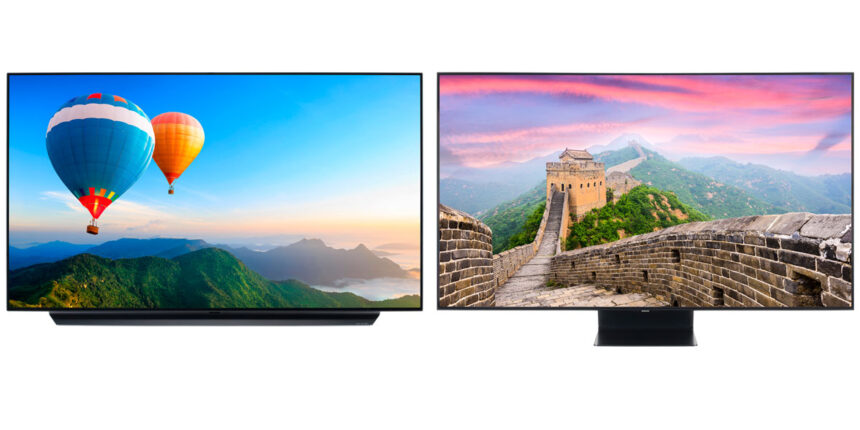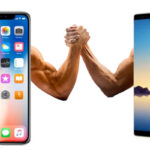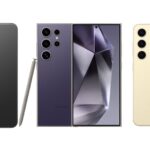LG and Samsung are leaders in the TV manufacturing industry, each boasting unique features and technological advancements. This article compares both brands in detail to help you decide which TV might be the best fit for your living space.
From their origins to the latest innovations, we will explore all aspects to give you a clear view of each brand’s offerings. Whether you’re a movie lover, a sports fan, or a gaming enthusiast, understanding the strengths and limitations of each brand is crucial.
Related: iphone vs Samsung
History and Brand Legacy
LG has been a key player in the electronics market, known for its pioneering technology and extensive range of products. Beginning as a chemical industrial company, LG quickly made its mark in the electronics world with its innovative approach.
Samsung, on the other hand, started as a trading company and evolved into a global conglomerate with a significant impact on the electronics industry, especially in the TV segment. Samsung’s commitment to excellence has made it a household name worldwide.
Technology Innovations
LG has made significant strides in TV technology, especially with its introduction of OLED technology, which offers superior blacks and vibrant colors. Their continuous push for better sound integration and smart connectivity features stands out.
Samsung is not far behind, with its development of QLED technology that ensures bright and vivid picture quality. Samsung’s investment in AI technology and the integration of smart home features also demonstrate its forward-thinking approach.
Picture Quality
Comparing LG’s OLED and Samsung’s QLED displays reveals distinct advantages. OLEDs are known for their excellent black levels and contrast ratios, making them ideal for dark room viewing. On the other hand, QLEDs by Samsung offer brighter screens and more vibrant colors, which are great for well-lit rooms.
Both brands have invested in technology that minimizes glare and enhances viewing angles, which ensures that every seat in the house offers a great view.
Sound Quality
LG’s TVs are equipped with Dolby Atmos, offering a rich, immersive audio experience. Their soundbars are often praised for their clarity and depth.
Samsung’s acoustic beam technology focuses on delivering directional sound that moves in action with the visuals on screen, providing a more immersive viewing experience.
Smart TV Features
LG’s webOS offers an intuitive interface and access to a plethora of applications and streaming services. It’s praised for its customization options and ease of use.
Samsung’s Tizen OS also offers a wide range of apps and services, along with better integration with Samsung’s ecosystem, which might be a deciding factor for users with other Samsung devices.
The Final Verdict
There’s no definitive winner in the LG vs. Samsung TV battle. The best choice depends on your priorities:
- For superior picture quality with deep blacks and a wider viewing angle, prioritize LG OLED.
- If you crave high brightness, vibrant colors, and a feature-rich experience, Samsung QLED might be ideal.
- Gamers might favor LG for its lower input lag on some models.
- Movie buffs seeking the most cinematic experience might lean towards LG OLED.
Ultimately, consider your budget, viewing preferences, and desired features to make an informed decision. LG and Samsung offer exceptional TVs, so you can’t go wrong with either brand!
Related: Samsung Galaxy s24 vs Samsung Galaxy S24+ Specs
LG vs. Samsung TV: FAQs
Q: Which brand has better picture quality, LG or Samsung?
A: It depends. LG OLED offers superior contrast and deeper blacks, while Samsung QLED excels in brightness and vibrant colors. Choose LG for a more cinematic experience, Samsung for a punchier image.
Q: Are LG TVs more expensive than Samsung TVs?
A: Not always. LG offers a wider range of price points, including budget-friendly options. Samsung tends to be pricier, especially for high-end models, but they often come with more features.
Q: Which is better for gaming, LG or Samsung?
A: Some LG models boast lower input lag, making them ideal for gamers. However, Samsung QLEDs often have features like high refresh rates appealing to gamers too.
Q: What is the difference between OLED and QLED?
A: OLED (Organic Light-Emitting Diode) offers superior contrast and deeper blacks. QLED (Quantum Dot LED) delivers higher brightness and vibrant colors.
Q: Are Samsung TVs good for watching movies?
A: Absolutely! Samsung QLEDs provide a stunning viewing experience, but LG OLEDs might be even better for movies due to their deeper blacks and wider viewing angles.
Q: Which smart platform is better, LG webOS or Samsung Tizen?
A: Both are user-friendly. LG webOS is known for its simplicity, while Samsung Tizen boasts a vast app store and multi-device control. Choose based on your preference for interface and desired features.





